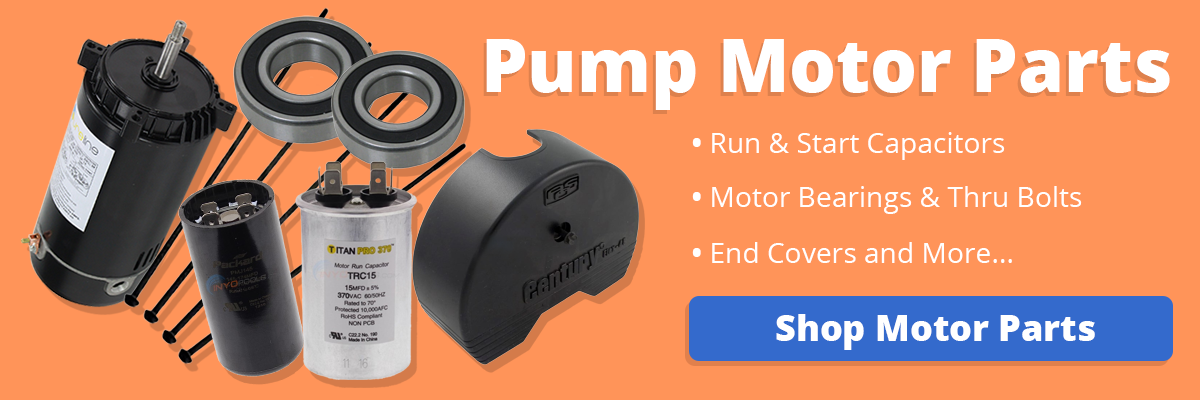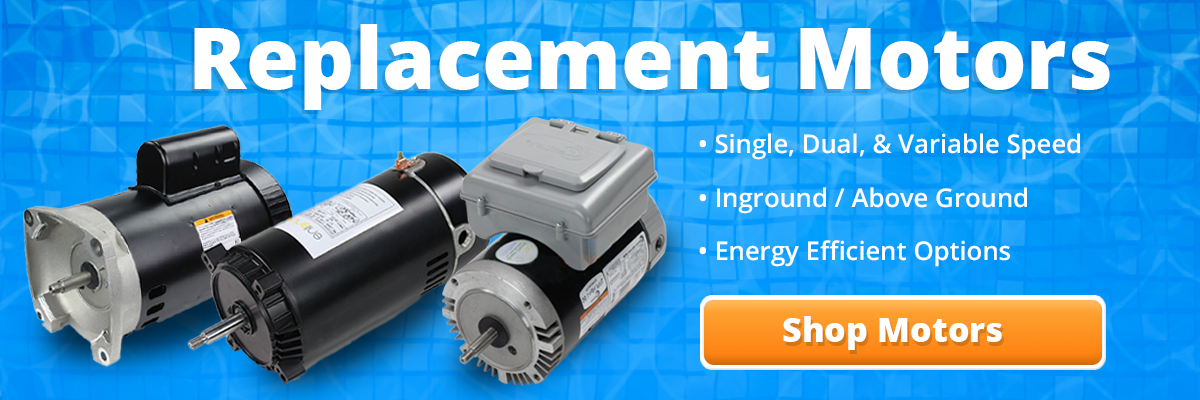If your pool pump motor is smoking of cycling on and off, it is severely overheating. This guide discusses some of the conditions that cause your pool pump to overheat. If this problem isn't corrected, it will burn out your motor's windings and cause it to fail.
Note: A running motor that is too hot to touch is not necessarily overheating. If the automatic protector is not tripping and the actual running amps do not exceed the maximum amps on the nameplate, the motor is not overheating.
Click Here to View Motor Parts (Including Capacitors, Bearings, Switches & More)
Click Here to Find Your Replacement Pool Pump Motor



Laura Posted: 6/12/2016
I just installed a new pool pump. Wiring all good new. Turns on for a minute then shuts down. Motor very hot. Help I cleared everything from strainer basketReply
InyoPools Product Specialist Dennis R. Posted: 6/1/2016
Ron - Thanks very much for your feedback. There's nothing like actual results to help solve other people's problems.Reply
Ron Posted: 6/1/2016
Follow up. It was the capacitor. I replaced it quite easily and it fixed my problem. Thank you for the topic tutorial.Reply
Ron Posted: 5/31/2016
Like Justin, my pump appeared to be running fine, until one day it started to buzz, then shut down, and did this repeatedly. I understand that this could be the capacitor, which I will check. When the buzz starts as if the motor is about to start, I hand twist the flat shaft at the back and the motor starts up and begins to turn, but will shut down after a minute or two and the motor is very, very hot. Could this still be the capacitor?Reply
InyoPools Product Specialist Dennis R. Posted: 3/21/2016
Justin - A buzzing sound is a common symptom of a bad capacitor. See our guide on "How To Replace a Pool Pump Capacitor".Reply
Justin Posted: 3/20/2016
My pool pump seemed to be running just fine the other day. I realized it wasn't running today. I cleared out the filters in the pool and pump, when I touched the pump motor, it was pretty hot after less than 1 second. I cut off the breaker to the pool pump and let it cool down. I turned on breaker back on and there was a buzzing sound (like it was getting electricity but not moving) after about 30 seconds to 1 min, it shut itself off. Any idea what the problem is? Do I need to purchase a replacement pump or am I able to troubleshoot and fix the problem. I just moved into the house, so I have no idea how old the pump is, I can't find a year...Reply
InyoPools Product Specialist Dennis R. Posted: 8/1/2015
Alex- The assumption here is that the water flow through the pump is not balanced. Your pump cannot suck in water as fast as it discharges the water causing air in the strainer basket. By reducing water flow on the discharge side (returns) you are balancing the flow which is easier on the pump.Reply
Alex Posted: 7/31/2015
Wouldn't that put more force on the pump causing it to ovearhest even faster?Reply
Customer comment Posted: 3/21/2014
also you can throttle back on the return valve 1/3 of the way.especialy if a high head pump was installed in a low head aplication.if no return valve then install smaller "eyeballs" on your returns to restrict the flow some.works like a charmReply